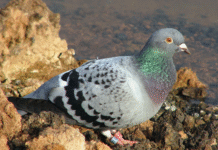THE Ministry of Agriculture passed Regulation 50/2020 that provides guidelines for establishing a post-monitoring evaluation scheme for genetically engineered (GE) crops. The guidelines were developed in accordance with the country’s regulatory framework through Regulation 21/2005.
Indonesia adopted its national biosafety regulatory framework in 2005 but GE crop varieties have failed to reach commercialization due to the lack of post-monitoring guidelines. Regulation 50/2020 is expected to fill that void and provide direction towards the establishment of the standard operating procedure (SOP) for GE variety release. The Indonesia Center for Agricultural Biotechnology and Genetic Resources (ICABIOGRAD) is in charge of developing the SOP.
Among the highlights of Regulation 50/2020 is the requirement for applicants or permit holders to conduct a “routine monitoring” of GE crops grown in the country for the first three years of cultivation. The monitoring will be conducted by an independent survey agency or university and its report will include farmer surveys, scientific papers, and environmental questionnaire guidelines. The monitoring will also be conducted in three regencies/cities if the GE plants are planted in one province, in three regencies/cities and two provinces if the GE plants are planted in two provinces, and in three provinces if the GE plants are planted in three or more provinces. Any impact on the health of livestock or the environment should be reported to the appropriate regulators.
Regulation 50/2020 is expected to help usher GE crops into commercialization through a science-based and participatory evaluation.

















